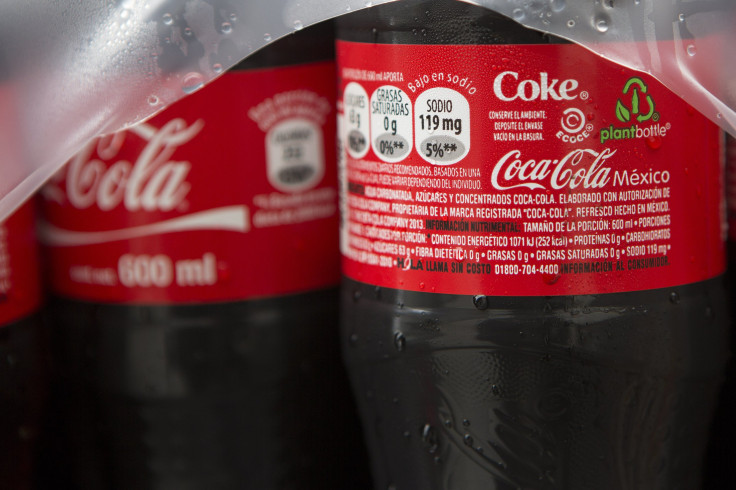
"A Coke is a Coke and no amount of money can get you a better Coke than the one the bum on the corner is drinking," stated artist Andy Warhol about the uniformity of Coca-Cola. "All the Cokes are the same and all the Cokes are good. Liz Taylor knows it, the president knows it, the bum knows it and you know it."
With all due respect to Mr. Warhol, hard-core Coca-Cola fans can attest that not all Coke tastes the same! Mexican Coca-Cola, which has been dubbed "Mexicoke" by fans, has earned the reputation of tasting significantly better than the American variation. The credit for the superior taste has been given to the source of the sweetener used: American Coca-Cola is made with high-fructose corn syrup while Mexican Coca-Cola is made with cane sugar. The popularity of Mexican Coca-Cola is so high that international fans of the drink are willing to shell out more money to drink the cane sugar variation.
Even New York Times writer Rob Walker shared chronicled his experience drinking Mexicoke in his op-ed piece about the beverage and the difference he noted.
"I am casting myself in the role not of the reasonable observer but of the dubious product-cultist," Walker wrote. "Some years ago I noticed a glass bottle of Coke for sale, and that was something I hadn't seen in a while. It looked great. I enjoyed drinking it immensely. My rational explanation was Coke tastes better from a glass bottle than from a plastic one or from a can."
Walker proceeded to explain that he then noticed that the difference was not in how he chose to consume the Coca-Cola, but rather, where it was made. In fact, the source of sweetness of the popular beverage varies from country to country--Colombia uses sugar, Argentina uses high-fructose corn syrup and Mexico uses cane sugar.
But now there is some disappointing news for those who love Mexicoke, as executives of Coca-Cola in Latin America have decided to stop using cane sugar and opt for high-fructose corn syrup. The motive behind the decision, according to Coca-Cola, is to cut costs after Mexico's congress approved a tax on soda that will cost one peso (or $0.08, at 13 pesos to the dollar) per liter of soda sales. For full disclosure: The soda tax was passed in an effort to tackle Mexico's obesity epidemic since recent statistics suggest that over 70 percent of Mexico's population is considered to be overweight and according to a study by the UN Food and Agriculture Organization (FAO) found that Mexico is the fattest nation in the world. In order to maintain profits and keep the price of Coca-Cola constant for Mexican consumers, the executives have reportedly decided to "move to more fructose."
It's important to note that Mexican Coca-Cola was never free of high-fructose corn syrup since the beverage has always contained the controversial ingredient, but in low quantities. In 2010, researchers from the University of Southern California's Keck School of Medicine tested out the ingredients in Mexican Coca-Cola available in East Los Angeles.
"The Mexican Coca-Cola lists "sugar" on the ingredient list, but the laboratory did not detect any sucrose, but rather near equal amounts of fructose and glucose, results which suggest the use of [high fructose corn syrup]," revealed the researchers in their findings. "According to the FDA guidelines, the word "sugar" can only be used in reference to sucrose.
It's no surprise that the transition from cane sugar to high-fructose corn syrup will be controversial, to say the least, since fans of the carbonated drink swear by its superior quality. And then there's the health advocates who, rightfully, are concerned by the side effects of high-fructose corn syrup. While the decision to ingest (or not to ingest) products with high-fructose corn syrup is a personal one, there are some facts that every consumer needs to know:
1. High-fructose corn syrup is linked to obesity. In 2004, researchers at the Pennington Biomedical Research Center of Louisiana State University published their findings that revealed that high-fructose corn syrup is a major player in America's obesity epidemic. Keeping this in mind, one can deduce that this switch will prove counter-productive in the battle against obesity.
2. All sugar is not all the same. Defenders of high-fructose corn syrup will argue that cane sugar and high-fructose corn syrup are similar in structure and ergo, are not very different. But from a biochemical standpoint, the two ingredients are not identical and as such, they affect the body differently.
3. High-fructose corn syrup contains contaminants that are not regulated. High-fructose corn syrup is notorious for containing troubling levels of mercury and other questionable chemical compounds that are not measured or regulated by the U.S. Food and Drug Administration.
4. It will hinder the taste that "Mexicoke" is famous for. Those who have tasted both variations of the beverage insist that not only is Mexican Coca-Cola sweeter, but the high-fructose corn syrup variation is bitterer, more sour and boasts a synthetic taste. In 2009, Consumer Reports magazine did a blind taste-test comparison which found that Mexican Coca-Cola had "a fuller, slightly more complex flavor."
Want to join us in mourning the death of Mexican Coke? Tweet about this saccharine tragedy using the hashtag #RIPMexicanCoke and we'll feature your tweets in our next story! But if you're a cornophile like Latin Times reporter Oscar López (or you're just undecided on the matter), be sure to check out our story on why the switch from cane sugar to corn syrup may not be such a bad thing after all!
UPDATE: Coca-Cola has spoken! Read what Coca-Cola Mexico has to say about the new changes in their formula. Will they really use high fructose corn syrup?
© 2025 Latin Times. All rights reserved. Do not reproduce without permission.





